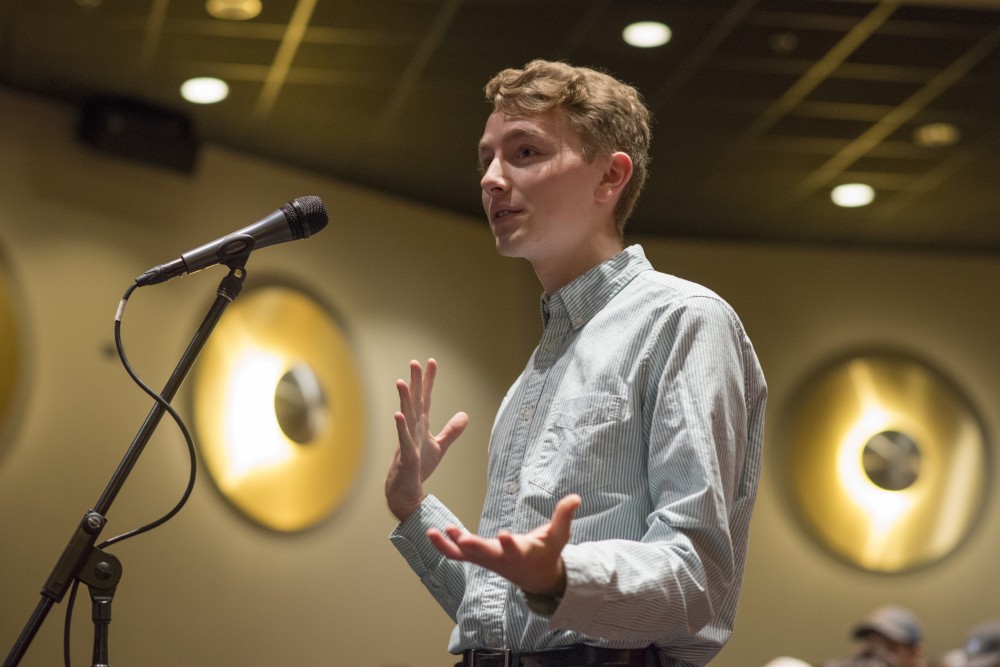As Regent Abdul Omari finished asking his questions, audience members nervously glanced at one another, each hoping they weren’t the one who had to speak first.
Long, silent pauses and empty seats were common at the Twin Cities listening sessions for the search for the next University of Minnesota president.
In the past week, the University’s Presidential Search Advisory Committee held seven public listening sessions across at system campuses across the state, including three on the Twin Cities campus. The sessions were intended to be chance for the University community to provide input on what they want to see in the next University president.
However, few people attended the sessions. Around 100 people collectively attended the three Twin Cities sessions. In contrast, the system campuses, who have considerably less students, faculty and staff, had attendance numbers ranging from 80 to 150 attendants per session.
“If you look at a per capita basis, the turnout has been much higher at the majority of the system campuses,” Omari said. “Definitely less shy, if you will, in the first commenters.”

PSAC even changed the venue of the sessions on the Twin Cities campuses in anticipation of a larger turnout based on what they saw at the system campuses.
Even with low turnout, many people still voiced their opinions.
Faculty, staff, students, alumni and community members had many opinions on what qualities and characteristics they want in the next University president. Some common wants brought up included diversity and a background in academia and research.
“What I want in a president is more transparency … along with that kind of goes with this audacity to think big and go beyond what people think is possible,” said political science freshman Jackson Kerr at the West Bank session.
PSAC broke the sessions into 45-minute segments for students, staff, faculty, alumni and community members.
Faculty members advocated for a president who is from academia, including the liberal arts. Faculty asked for a president with a focus on research, racial and gender diversity and who is approachable, kind and a good listener in their sessions.
Colleen Manchester, an associate professor in the Carlson School of Management, said the University is too divided, which was evident in the way PSAC divided the sessions into categories.
“It’s like we’re separated into silos,” Manchester said. “Silos cause mistrust and perpetuates mistrust.”
During the sessions, students advocated for a diverse president and one who prioritizes education and can stand up to legislative pressure and the Board of Regents.
“A strong University president needs to engage productively in leading the regents,” said Kate Knuth, a Ph.D. candidate in conservation sciences, during the session at Coffman Memorial Union.
Many students in attendance at the listening session were required for a class and received extra credit for providing input.
PSAC will have a profile available on its website on Oct. 4 that will be a conglomeration of the themes of all the listening sessions and the Board of Regents’ core criteria, Omari said.
“In many ways, a lot of the input is very similar no matter where you go,” Omari said. “The difference is in how people name it … Everyone’s talking about integration and connectedness, they just call it something different.”
The information gathered from the sessions will be combined with information gathered from the presidential search committee, regents and the search firm Storbeck/Pimental & Associates. The information will be used to create a profile to help the search firm move forward.
Regent Omari said he is now speaking with business people and legislators about their wants in a new president and will be speaking with Gov. Mark Dayton about the search next week.








